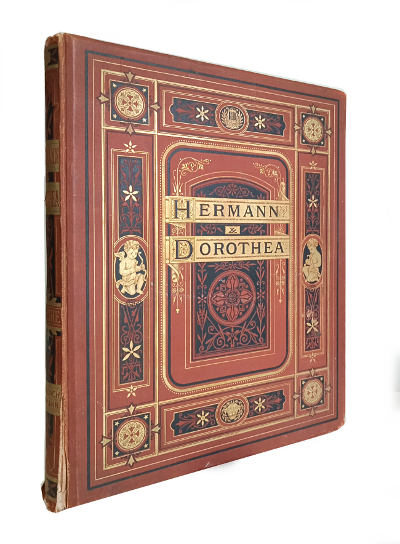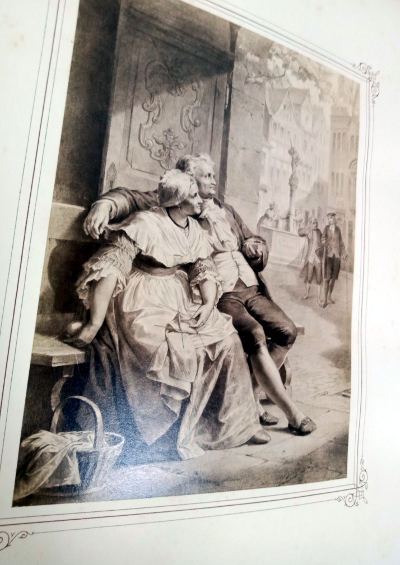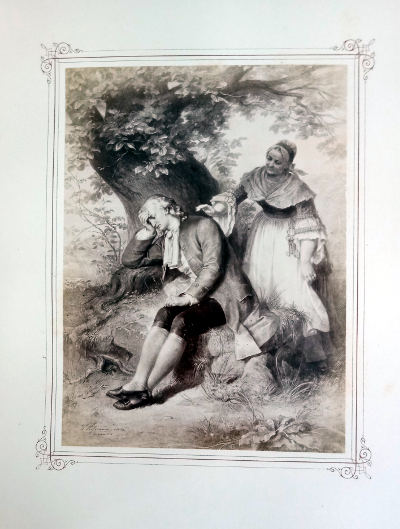About the book (from Wikipedia):
Hermann and Dorothea is an epic poem, an idyll, written by German writer Johann Wolfgang von Goethe between 1796 and 1797, and was to some extent suggested by Johann Heinrich Voss’s Luise, an idyll in hexameters, which was first published in 1782-84. Goethe’s work is set around 1792 at the beginning of the French Revolutionary Wars, when French forces under General Custine invaded and briefly occupied parts of the Palatinate. The hexameters of the nine cantos are at times irregular.
Robert Schumann wrote an overture to Hermann and Dorothea in 1851, his Opus 136.
Hermann, son of the wealthy innkeeper in a small town near Mainz, is sent by his mother to bring clothes and food to the refugees which have set up camp near their town. They have fled their villages on the western side of the Rhine river, now occupied by French revolutionary troops, in order to seek refuge on the eastern side. On his way to the camp, Hermann meets Dorothea, a young maid who assists a woman in her childbed on her flight. Overwhelmed by her courage, compassion, and beauty, Hermann asks Dorothea to distribute his donations among her poor fellow refugees.
Back home, he reveals his affection to his parents. His father brushes away his timid confession, reminding him bluntly that he wants Hermann to choose a wife from a respected local family with a generous dowry. He goes on to express his deep disappointment with Hermann’s perceived lack of ambition to move forward in life, and lectures him about how he should become a respected citizen.






